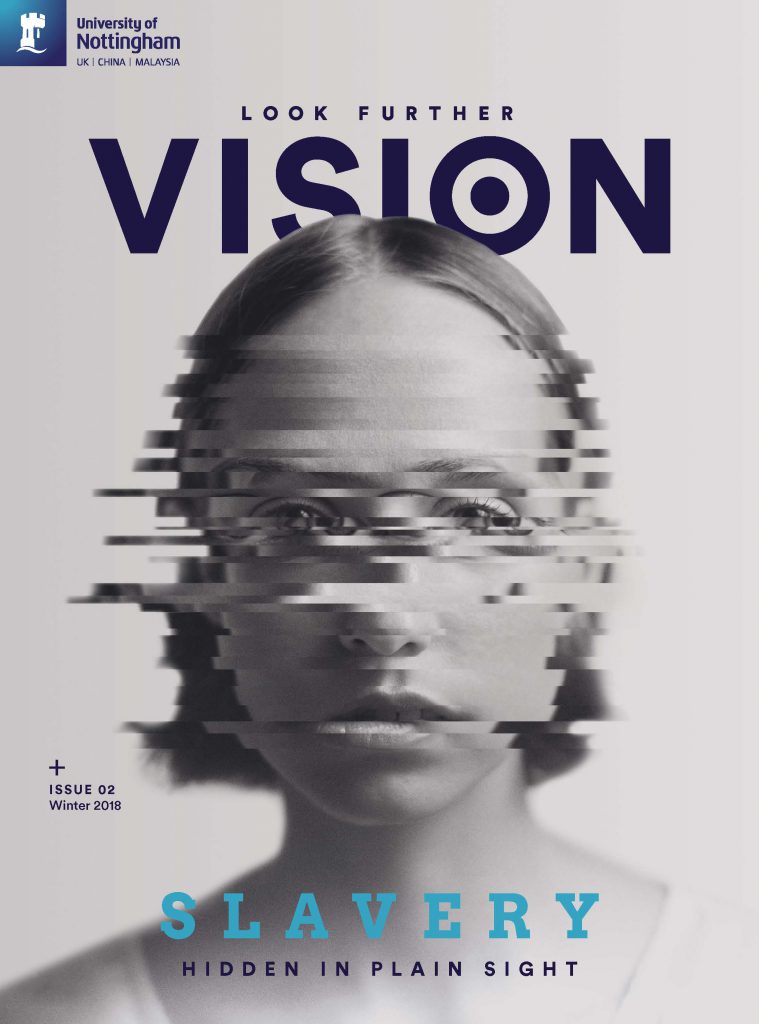
December 13, 2018, by Rob Ounsworth
40 million slaves hidden in plain sight
Inside the Rights Lab, more than 100 University of Nottingham academics have created the world’s leading research platform for ending slavery.
This Beacon of Excellence was created in response to target 8.7 of the UN Sustainable Development Goals: to end slavery in every corner of the world by 2030.
Its data-driven research is informing the robust, evidence-based strategies that governments need to deliver abolition, and secure a humane, productive future for the liberated.
This year, Rights Lab experts travelled to New York to advise the United Nations on how the global community can better share antislavery knowledge.
For the Global Slavery Index 2018, a monitoring and evaluation team led by Rights Lab Executive Director Professor Todd Landman assessed the responses of 89 governments to slavery. This provides policymakers with examples of good practice, as well as identifying gaps in responses.
Thanks to multidisciplinary expertise across the Rights Lab, slavery is being tackled on many fronts. Scholars from the School of Geography use satellites to track slavery from space, through clues such as the prevalence of fish farms in Bangladesh, thousands of brick kilns across Nepal, India and Pakistan, and charcoal factories in Brazil.
Closer to home, the Rights Lab examines slavery as an issue on our doorstep and is working with police, businesses and the community to establish Nottingham as the UK’s first slavery-free city.
And research led by Rights Lab Associate Director Dr Alex Trautrims, of Nottingham University Business School, aims to make UK businesses aware of the economic as well as moral arguments against slavery. Dr Trautrims is also advising Rights Lab honorary professor Baroness Lola Young on her new bill about slavery and supply chains.
The University also leads the world by putting survivors’ voices at the heart of the antislavery movement. It is incubating the Survivor Alliance, an NGO empowering survivors of modern slavery around the world to play an active role as community leaders and experts in a range of fields, as well as shaping antislavery programmes.
Professor Zoe Trodd, Director of the Rights Lab, said: “To help achieve UN target 8.7, we are working as part of a global community of policymakers, civil society actors and businesses with a shared vision of ending slavery in our lifetime.
“I am proud that the University of Nottingham will play a key role in ending slavery.”
Read more about the impact of this inspirational research in Vision, the University’s research and knowledge exchange magazine.
And look out for the Rights Lab’s antislavery mission in Discovery. For the World, a University campaign celebrating the impact of our world-class research on lives across the world. #fortheworld
Previous Post
Long live the tomatoNext Post
2018: our year in researchNo comments yet, fill out a comment to be the first


Leave a Reply